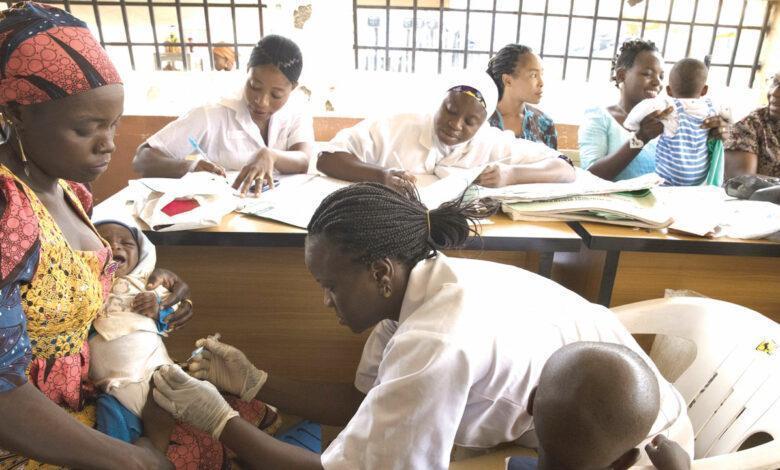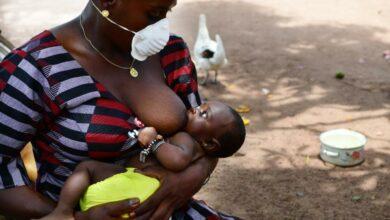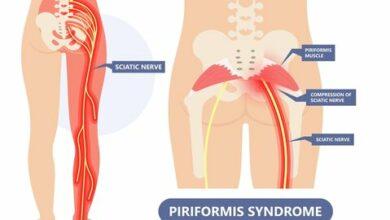
10 Factors Affecting Immunization In Nigeria
Immunization is an important public health strategy that aims at preventing the spread of infectious diseases in individuals and communities. In Nigeria, the federal government has implemented several immunization programs through the National Expanded Program on Immunization, established in 1979.
The program aims to ensure that all individuals have adequate access to life-saving vaccines, routine immunization for children, and pregnant women, as well as health campaigns for diseases such as measles and polio. However, the Expanded Program on Immunization is affected by challenges including a lack of funds, trained healthcare specialists, and challenges surrounding vaccine supply and distribution.
👉 Relocate to Canada Today!
Live, Study and Work in Canada. No Payment is Required! Hurry Now click here to Apply >> Immigrate to CanadaHowever, these challenges have not stopped Nigeria from making some level of progress in
increasing vaccination coverage and reducing the scale of infectious diseases.
Read Also: Factors Affecting International Trade In Nigeria
What Is Immunization
Immunization is simply the process of administering a vaccine to an individual to protect them against infectious diseases. It is also known as vaccination. Vaccines work by replicating the infection they protect the body against, and this causes the immune system to produce a response. The response helps the body to identify and attack the real infection if the individual becomes exposed to it sometime in the future.
Immunization is considered one of the most cost-effective public initiatives. This is because it not only protects the individual who receives the vaccine but also helps in preventing the spread of the disease to others by creating herd immunity.10 Factors Affecting Immunization In Nigeria
Importance Of Immunization
Immunization is a crucial public health initiative. Some of its benefits include:
- Protection from harmful and infectious diseases: Vaccination helps to protect individuals from deadly diseases, such as tetanus, measles, or polio.
- Curtailing the spread of disease: Immunization also helps to curtail the spread of the disease to others and not just the individual who receives the vaccine.
- Cost-effective: Immunization is one of the cost-effective public health programs. It is much less expensive to prevent an illness with a vaccine than to treat an individual once he or she becomes infected with the disease.
- Protection and preservation of future generations: Immunization also helps to preserve future generations as it not only protects individuals who receive the vaccine but also because certain diseases like Polio can be completely eradicated if a large number of individuals become vaccinated.
Read Also: 10 Economic Factors in Nigeria
👉 Relocate to Canada Today!
Live, Study and Work in Canada. No Payment is Required! Hurry Now click here to Apply >> Immigrate to CanadaAdvantages Of Immunization
There are several advantages of immunization in Nigeria, including:
- Prevention of Diseases: Immunization is a very effective way to curb the spread of infectious diseases like polio and tetanus. These diseases can cause severe illness and death.
- Cost-effectiveness: Immunization serves as a cost-effective way to protect against infectious diseases because the cost of preventing a disease is much lower than treating it.
- Saving of lives: Immunization is a very effective way to save lives, especially in Nigeria where there is a high rate of child mortality.
- Promotion of economic development: Immunization helps to boost economic development by reducing the burden of disease on communities
- Improving maternal and child health: Immunization can help to improve maternal and child health by protecting pregnant women and young children from vaccine-preventable diseases.
Read Also: Various Factors Affecting Health Globally And in Nigeria
History Of Immunization In Nigeria
The history of immunization in Nigeria can be traced back to the early 1900s. It began with the smallpox vaccination campaign which was launched in 1902 by the British government. It was initially met with resistance from some cultural and ethnic groups. However, the campaign later became more successful and in 1971, smallpox was declared eradicated in Nigeria.InformationGuideNigeria
In the early 2000s, Nigeria made some progress in expanding access to immunization. The government established the National Primary Health Care Development Agency (NPHCDA) in 2001 which aims to oversee the country’s immunization efforts.200 Romantic Love Message
In recent years, Nigeria has made some progress in increasing access to immunization. The government has worked to improve funding for immunization programs and to increase public awareness about the necessity of vaccination. However, some of the factors stated below still affect this aspect of public health in Nigeria.
Read Also: Environmental Factors Affecting Business In Nigeria
Factors Affecting Immunization In Nigeria
Some factors that can affect the success of immunization programs in Nigeria include:
- Vaccine hesitancy: This refers to the reluctance of some individuals to take the required vaccine. This is because they do not have an understanding of the advantages of vaccines.JAMB Portal
- Economic status: Impoverished People may not have access to immunization services due to a lack of transportation to get to the health centers.
- Geographical challenge: Remote or underdeveloped areas may have restricted access to immunization services due to a lack of well-trained staff or infrastructure.
- Misinformation and lack of adequate information: When there is no proper information about vaccines and immunization can lead to vaccine hesitancy and mistrust of vaccines.
- Political instability: Political conflict can make it difficult to carry out vaccination campaigns and awareness to reach all communities.105 Good Morning Love Messages
- Inadequate funding: Immunization programs in Nigeria are often underfunded, and this can limit their effectiveness.
- Poor infrastructural facilities: Limited access to healthcare facilities especially in rural areas and lack of trained workers and bad roads, can make it difficult to get vaccines to those who need them.
- Inadequate coverage for health insurance: Many Nigerians are poor and do not have health insurance, hence they are unable to afford vaccination costs.NYSC Portal
- Pandemic: The COVID-19 pandemic which occurred in 2020 also contributed to the challenges facing immunization in Nigeria. Due to the pandemic, the country experienced some delays in the delivery of vaccines, majorly caused by supply chain issues since everyone and most organizations had to stay indoors.
- Periods of religious crises or intra-group wars: Group crises in a country can be detrimental and affect immunization in Nigeria. For instance, during the civil war in Nigeria from 1967-1970, many children were not immunized and this led to lots of deaths, especially in the eastern part of the country.
Read Also: 10 Factors Affecting Labour Force
Conclusion
In conclusion, Immunization is a vital public health initiative for preventing the spread of infectious diseases. However, Nigeria has struggled to achieve high rates of immunization due to a lack of funding and infrastructure. Although the Nigerian government has made some efforts to increase funding for immunization and improve access to vaccines, there is more to be done to ensure that all children in the country have adequate access to vaccines that can save their lives.
Check JAMB Result
Check and Confirm: How much is Dollar to Naira








